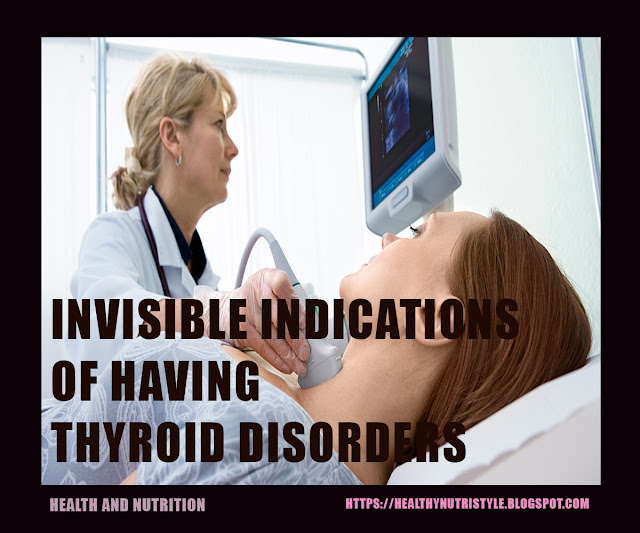 |
| INVISIBLE INDICATIONS OF HAVING THYROID DISORDERS |
DIGESTIVE PROBLEMS
Do you have problems with constipation or diarrhea? However you may have Thyroid problems! Gas, flatulence, and bloating may be signs of these thyroid disorders. Changes in hormone levels bring about changes in the digestive system.
CHANGES IN WEIGHT
The Thyroid gland regulates the body’s metabolism. No matter how much effort is gained or lost, it does mean you have hypothyroidism. On the other hand, people with hyperthyroidism can easily lose weight because of their increased metabolic rate.
BREATHING PROBLEMS
Some foods, such as soy, nuts and cabbage, cause problems in the Thyroid gland and cause respiratory problems. It is thus difficult to breathe when eating such foods.
HEART RATE
Do you have any excitement and your heart rate goes up? It is an indicator of Thyroid gland problems. When the thyroid hormone level is low, the heart rate is lower than normal.
LOSS OF APPETITE
Loss of appetite is another sign that the thyroid gland is in trouble. People with Thyroid problems may not feel right, and they may not feel the weight gain or decrease.
WHEN TO VISIT A DOCTOR
Visit your doctor if you are feeling exhausted without any cause or have any of the other indications or signs of Hypothyroidism, such as a pale, dry skin, puffy face, hoarse voice or a constipation.
HOW DO YOU CONFIRM YOU HAVE THYROID?
Your Thyroid gland is situated in the area of your neck. While focusing on this region in the mirror, tilt your head back. As you gulp down, stare at your neck. Make sure for any bulges or lumps in this area while you swallow.
HOW DOCTORS ENSURE YOUR THYROID?
Your doctor can make a diagnosis Hyperthyroidism and Hypothyroidism by testing the stages of Thyroid hormones in your blood. The tests evaluate the hormones from the Thyroid so far, in addition to Thyroid-Stimulating Hormone (TSH), a chemical released by the pituitary gland that generates your thyroid.
WHAT WILL HAPPENS IF TSH LEVEL IS ELEVATED?
The TSH level in your blood discloses how much T4 your pituitary gland is requesting your Thyroid gland to make. If your TSH levels are unusually high, it possibly mean, you have an underactive Thyroid, or Hypothyroidism.
Comments
Post a Comment